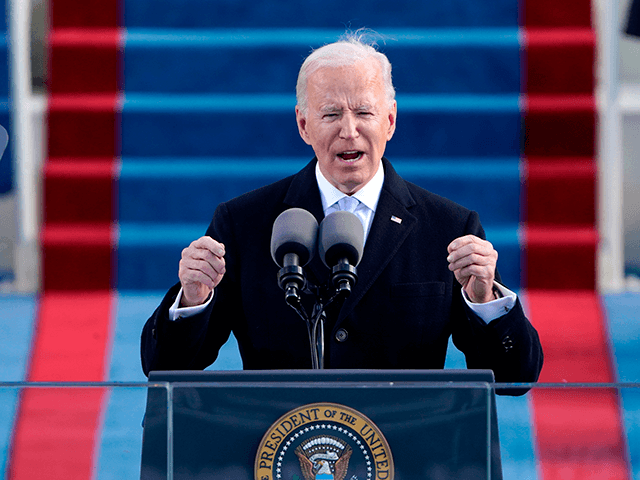President Joe Biden struck a chord of unity in his inauguration speech on Wednesday. “Today, on this January day, my whole soul is in this: bringing America together, uniting our people, uniting our nation,” he said. “And I ask every American to join me in this cause.”
It’s a nice sentiment for a divided country. Yet talk is cheap — especially from career politicians. Biden’s policy actions, which will come under enormous pressure from his party’s activist wing, will determine whether he’s a unifier or a divider and whether he’s someone small businesses should trust or fear.
Biden’s first major piece of legislation — his proposed $1.9 trillion Covid-19 relief package — has some popular attributes but others that betray his unity message. It includes some policies that would help small businesses but others that would significantly hurt them. Call it the good, the bad, and the ugly.
Among other broadly popular proposals, the bill calls for expanding the Earned Income Tax Credit, a.k.a. the Working Americans Credit, which is one of the few social assistance programs that enjoy widespread bipartisan support. The EITC supplements low-income workers’ wages through the tax code, rewarding work without punishing small businesses.
The EITC is well-targeted, helping those earners who actually need it. Unlike other social programs, it does not incentivize idleness. According to the Center on Budget Policy Priorities, the EITC helped 25 million working adults in 2018, lifting 5.6 million people out of poverty, including about three million children. Significantly increasing the EITC, as Biden’s legislation would do, can help even more hardworking Americans, while boosting labor force participation needed to get the economy moving again.
Yet Biden’s legislation would also expand and extend federal unemployment benefits, slowing the economic recovery by discouraging Americans from returning to work. When you can make a few thousand dollars a month from federal and state unemployment benefits by sitting on your couch, going back to work doesn’t look all that attractive. The nonpartisan Congressional Budget Office estimates that last year’s expanded federal unemployment benefits paid five in six recipients more than if they returned to their jobs. Extending this perverse incentive will make it harder for small businesses to hire and slow the economic recovery.
In another blow to small businesses: The legislation doesn’t include Covid-19 liability protections, meaning employers are vulnerable to frivolous lawsuits from trial lawyers who have aligned themselves with Democrats.
The worst part of Biden’s legislation is his proposal to more than double the federal minimum wage to $15 an hour. Doubling entry-level labor costs will further hurt wounded small businesses struggling to get back on their feet. In contrast to the EITC, minimum wage increases are not well-targeted, often helping teen workers in high-income homes at the expense of jobs for the truly vulnerable.
According to a 2019 CBO report, a $15 minimum wage would cost the country 1.3 million jobs. This job loss would come at the worst possible time for jobseekers as the labor market is already struggling. The report concludes that women, workers without a high school degree, and part-time employees would bear the brunt of the job loss. A recent study by economists David Macpherson and William Even finds that a $15 entry-level wage would destroy more than one million jobs in the hospitality industry alone.
Biden’s $15 wage push received an assist this week when Treasury Secretary nominee Janet Yellen flip-flopped on her minimum wage position during her confirmation hearing, seemingly to appease the Biden administration. Yellen claimed that the consequences of minimum wage hikes are “very minimal.” Yet in 2014, she stated unequivocally during a Congressional hearing that minimum wage increases have a “negative impact on employment.” Yellen accepted a CBO report’s findings saying that a $10.10 minimum would cost 500,000 jobs then. Yet she seemingly ignores the CBO’s updated findings out of political expediency now.
A $15 minimum wage, which has been on Democrats’ wish list for more than a decade, is the wrong policy at the wrong time. By tucking it into a Covid-19 relief package, Biden is shamelessly attempting to capitalize on pandemic misfortune to achieve a longstanding partisan goal. There’s nothing uniting about that.

COMMENTS
Please let us know if you're having issues with commenting.